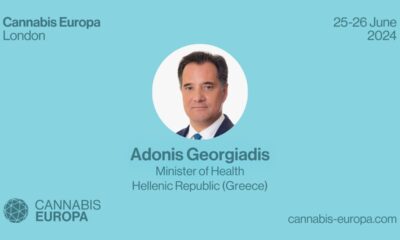Aged 15, Zak was given six to 12 months to live, but eight years later his thirst for life is greater than ever, says dad, Benedict Lamb.
No parent wants to hear a doctor say there is nothing more they can do for your child. Zak Lamb was 15 at the time, having been diagnosed with Dravet Syndrome, a rare form of epilepsy he had been suffering seizures since he was just 11 months.
Doctors tried various cocktails of drugs to keep it under control, but Zak even at his best he was still experiencing up to 16 seizures a night.
By 15 his condition had begun deteriorating rapidly. His seizures became more frequent and severe, he suffered damage to his brain and nervous system as a result and needed the use of a wheelchair.
Eventually Zak’s consultant delivered the devastating news there was nothing left to try.
“The NHS told us that he had six to 12 months to live which I got in writing,” says Zak’s dad 52-year-old Benedict Lamb.
“As soon as a doctor writes a letter saying that your child is not going to not make it, certain mechanisms kick into place.”
The Make a Wish Foundation reached out and funded a final holiday for the family to make some lasting memories.But Benedict wasn’t ready to say goodbye.
“At that point, I didn’t even know what CBD was, I just Googled epilepsy treatments and it came up,” he says.

Benedict representing the End Our Pain campaign
“I started to do some more research and discovered Epidiolex.”
In his own words, he got lucky. GW Pharmaceuticals was just about to start its first trial for the drug on patients in the United States.
He happened to have a friend who knew CEO Justin Gover and managed to get him a phone call with the pharmaceutical giant.
Unprecedentedly, by the end of the call he had agreed to write a license specifically for Zak.
“A pharmaceutical company would normally licence a drug for a territory or a country,” Benedict explains.
“It’s very unusual for them to write a licence for an individual – but they did that for Zak.”
There was one catch though, he had to sign a non-disclosure agreement, and wasn’t allowed to speak about it for the first year.
A filmmaker and art director, Benedict was making a documentary for Dravet Syndrome UK at the time, but was forced to keep his son’s progress from other parents in similar situations.
“Back then Epidiolex was the holy grail, it was the drug on the horizon and everyone wanted it,” he says.
“It was difficult interviewing all these parents with very sick children and not being able to tell them that Zak was on it.”
Epidiolex was made available on the NHS in the UK for children with rare and severe forms of epilepsy in 2019.
However, many parents have since found it to be ineffective for their child, or report that their progress has plateaued after several months on the treatment.
Zak’s was a rare success story, so much so, his case was used by GW Pharmaceuticals’ in their application for FDA approval of the drug.
After a year of having to keep quiet, Benedict was suddenly asked to speak to anyone and everyone about the benefits of medical cannabis.
“Zak was patient number one and he was very rare at that point,” he says.
“There were another hundred children on the trial and out of 101 children, Zak’s was by far the most successful case.”
Benedict continues: “He went from having between 12 -16 seizures every night to having one to two seizures every few days, in less than a week.
“We are lucky in a way, compared to where we were, Epidiolex is a success and it hasn’t plateaued off which is one of the biggest fears for most people in this situation.”
Now 23, Zak still has seizures, is reliant on a wheelchair and has autism, but since he started on the drug he has been able to attend St Piers College for young epilepsy sufferers and has continued to make improvements.
“CBD has been very positive for Zak,” says Benedict.
“His awareness has grown, we’ve noticed that his interactions with the family, his carers, teachers and other students have greatly improved, as has his vocabulary, attention span, eye contact, his desire to socialise, and the number of hours he is awake every day.
“It saved Zak’s life, he was dying and now eight years on he is doing really well – but we’re not out of the woods.”
Of course, with every seizure he experiences putting Zak’s life at risk, Benedict’s ultimate aim is for his son to be seizure-free.
“Every time you have a seizure, it comes with the risk of death or causing more damage to the nervous system or brain,” he says.
“We’re in a much better place than we were, but Zak hasn’t got any worse or any better. The goal for any parent is to get your child to the point where they have no seizures at all.

Benedict and Zak
“That way the risk of mortality is greatly reduced, their development will come on – and of course, the whole family will be much happier and sleep better.”
As a member of the End Our Pain campaign, Benedict acknowledges the relatively privileged position he is in, in not having to find thousands of pounds each month to fund a private prescription of full extract cannabis.
But he is no stranger to the fear that many of the parents feel – that a treatment keeping their child well, will be taken away.
Zak is due to try a new oil soon, containing higher levels of THC, which they hope will further reduce his seizures and improve his quality of life.
While it is generously being funded by the company for the first six months, after that it will be up for review and Benedict may find himself in the unimaginable position of balancing his family’s livelihood with his son’s life
“If Zak does well on it, there’s always a worry that after six months they will turn around and it’s now ‘X’ amount,” he says.
“It’s a fear that a lot of the other parents have, that when they start running out of money they will have to swap to a cheaper oil and their child will endup back in hospital.
“Juggling that financial stress against your child’s health is a horrible balance to be making, and the only reason they are having to make it is because Matt Hancock failed to keep his promise.”
The health secretary told campaigners last year that he would leave ‘no stone unturned’ in efforts to expand access to medical cannabis, but despite this no more NHS prescriptions have been issued.
Last month, Benedict was among several End Our Pain parents to hold public vigils outside UK health authorities across the country, demanding the Government help fund these children’s prescriptions until they become available on the NHS.
“The bottom line is that we all want the same thing,” he adds.
“For full extract medical cannabis to be prescribed for free on the NHS.”

 News6 months ago
News6 months ago
 Science5 months ago
Science5 months ago
 Industry6 months ago
Industry6 months ago
 News6 months ago
News6 months ago
 News5 months ago
News5 months ago
 Health5 months ago
Health5 months ago
 News5 months ago
News5 months ago
 Health3 months ago
Health3 months ago














